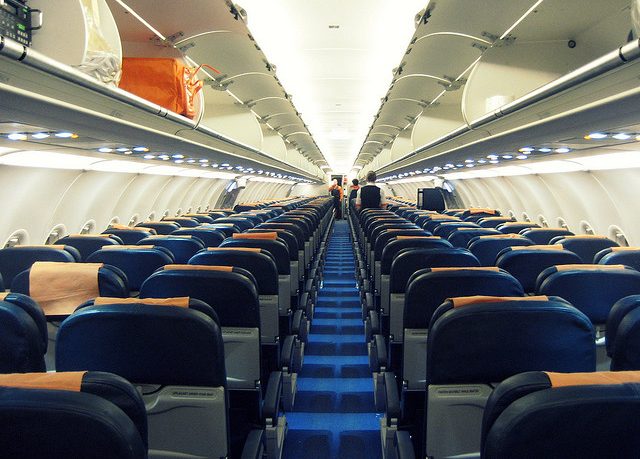Studies into the impact of toxic air fumes in aircraft cabins are not rigorous enough, academics are saying. They have been examining the research. They say governments and industry need to look closely at the issue to give a definitive answer to concerns about health risks. Dr Gini Harrison, a Lecturer in Psychology at The Open University, and Dr Sarah Mackenzie Ross of UCL (University College London), write in a paper published in the journal Cortex that more exacting research needs to be done to fully examine this potential health risk.
The paper exposes the difficulties of fully examining the impact toxic air fumes in aircraft may have on people’s health. They say studies to date lack objective measures, rely on self-reporting from aircraft crew and don’t look at the cumulative effects of exposure over time. Dr Harrison said:
While the existence of a relationship between contaminated cabin air and ill-health may be a potentially expensive and inconvenient truth; the costs of ignoring the possibility of such a relationship are too high to ignore.
The issue was brought to the fore last year as a coroner investigating the death of airline pilot Richard Westgate, who believed he’d been poisoned by repeated exposure to contaminated air, called for urgent action from British Airways and the Civil Aviation Authority to minimise any future risk of harm. Both organisations responded that no link between exposure to contaminated air and long-term health effects was established – although they noted that such a link can’t be excluded.
Dr Sarah McKenzie Ross, Honorary Senior Lecturer at UCL, said: “It seems clear that there is a reluctance from government or industry to investigate health problems related to cabin air quality. Other than one small, inconclusive on-board monitoring study that did not record any fume events, there have been no further attempts in the UK to look into this issue. At the moment we do not have enough evidence to say whether or not toxic fumes cause ill health in air crew, but government and industry bodies are turning a blind eye rather than seeking answers.”
It may be that ill health experienced by air crew is related to shift working patterns or other factors, rather than air quality, but until we investigate we just cannot say.
“If there really is no problem with air quality, then you’d think the industry would welcome an independent investigation to prove it. There are various ways that this could be done at a relatively low cost, less than what a day of bad weather costs an airline, but we have found the industry unwilling to commission or cooperate with any such studies.”
To confirm or deny the link categorically, the academics say that multi-disciplinary research needs to take place to address the questions and issues that remain. These include:
- examining the clinical incidence of ill-health amongst aircrew and passengers and associating these with different levels of exposure, considering cumulative low-level exposure as well as ‘fume events’
- developing reliable and objective measures of exposure, using air monitoring devices in all commercial aircraft
- extending the focus beyond a single chemical contaminant, looking as well at chemical compounds
Dr Harrison continued: “Contamination detection and air filtration systems should be installed in all commercial aircraft to help investigate this health concern.”
It is surprising that governments and industry are not making substantial efforts to look at the effects of toxic air exposure over time. It is an issue that needs a definitive answer.



